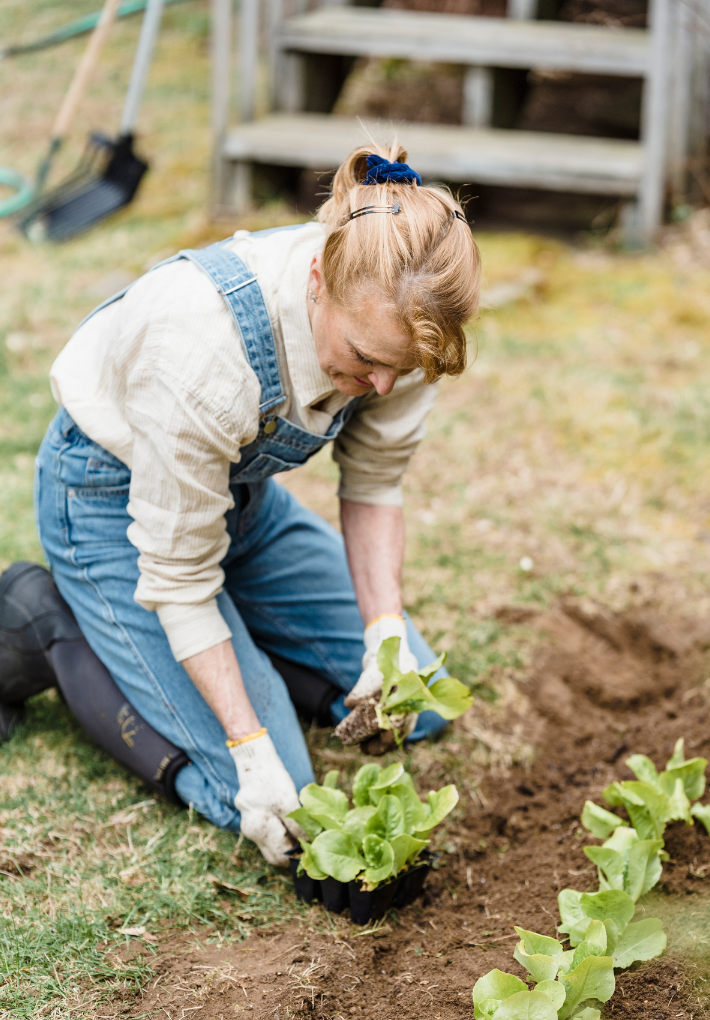Sometimes you need to just stop and smell the roses. As you tilt your head down towards the buds and deeply inhale, you may notice that some of your anxieties and worries have been released from your body and mind – even if only for a moment.
While floral scents may have their own slew of positive mental health benefits, did you know that the actual practice of gardening and growing your own flowers (or vegetables and fruits) can have similar effects?
Mental Health Benefits of Gardening
Research has shown that gardening may lead to the following health benefits:
1. Improving your mood. Studies have shown that interacting with nature can increase self-esteem, improve your mood, reduce anger, and boost an individual’s overall psychological well-being. Additionally, Vitamin D has been shown to decrease levels of depression.
2. Developing a growth mindset. According to the Harvard Business Review, a growth mindset is one in which individuals believe that their talents can be continually worked on through hard work, efficient strategies, and even positive criticism. Additionally, you may discover that you need to be flexible, patient and resilient in your new hobby.
3. Engaging in physical activity. The Centers for Disease Control and Prevention (CDC) classifies 30 minutes or more of gardening as exercise. In fact, some studies have shown that gardening between 30 to 45 minutes per day can burn up to 300 calories between the digging of holes, yanking of weeds, and raking of topsoil.
4. Eating healthier. Many gardeners choose to grow their own fresh fruits or vegetables which become staples in their own at-home dishes. By indulging in a diet that’s higher in whole foods – like fruits and vegetables – research has found that individuals are 35% less likely to develop depression than others who eat less of these foods. The foods that we eat have a significant impact on not just our physical body, but our overall mental health, too.
5. Developing a better self-care routine. You may be so accustomed to multitasking and being plugged-in during usual day to day tasks. Gardening will help you to keep your focus on one thing at a time, making you more fully present and in the moment.
How to Start Gardening
If you’re ready to begin gardening, the following steps may help:
Cultivate healthy soil.
The first step for success is preparing your soil. You can either dig straight into the ground or build raised garden beds. If you are choosing to dig, first clear out rocks and debris and dig up the grass. Then, loosen the soil to a depth of at least 8 inches so the roots can reach down. Lastly, add 2 to 3 inches of organic matter, such as compost or aged manure, onto your soil.
Aim for a loamy soil texture. It will consist of equal parts sand, silt, and clay. Loamy soil holds moisture but also drains well, allowing oxygen to reach your plants’ roots. It’s the perfect balance!
Choose your plants.
Start with understanding your Plant Hardiness Zone. New Jersey ranges from zones 6-7.
Once you know your zone, it will be easier to choose what plants you would like to work with and when to plant them. Remember, don’t overwhelm yourself with too many plants. Grow what you like and you will thoroughly enjoy watching it bloom. Consider researching “starter” plants that are typically easy for beginners, such as seasonal petunias.

Research your plants’ needs.
Once you know what plants you will be planting, be sure to research their needs. Pay attention to the amount of sun, moisture and overall environments your plants will need to thrive.
Pay attention to the progress.
You can also use your phone to set reminders to create a watering schedule or try using one of the many helpful gardening apps available.
If you're looking to beautify your communities, business, or home while also promoting mental health awareness, start with our butterflies. Check out our blog, "How Can I Promote Mental Health Awareness," to learn more.